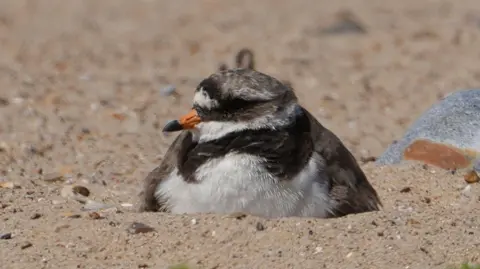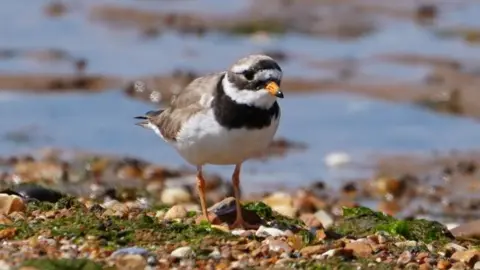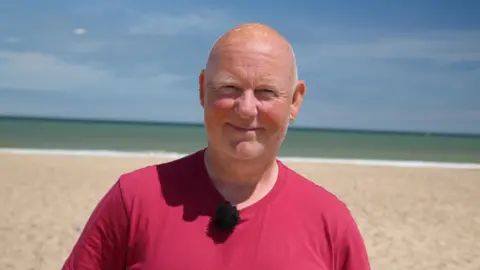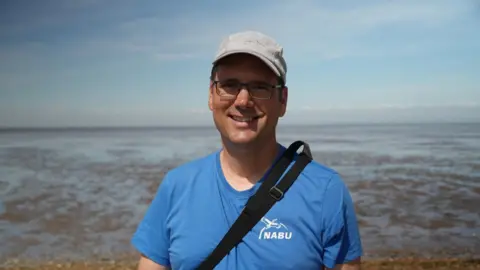Birds without borders: UK and German experts unite to help coastal species
 Shaun Whitmore/BBC
Shaun Whitmore/BBC Shaun Whitmore/BBC
Shaun Whitmore/BBCGerman researchers visited Norfolk to see how conservationists protect birds nesting along the coast.
The group from the Nature and Biodiversity Conservation Union (NABU) met with the RSPB to share experiences of managing similar species on beaches in Europe.
Mick Davis, senior beach warden on the Norfolk coastline, said the area was home to one of the largest colonies in the northern hemisphere of little terns.
He said: "These birds are dying out at the moment and we're in a project where we're trying to get them back and protect them."
Despite being on different sides of the North Sea, the areas share some of the same species of birds, including ringed plovers and little terns.
Mr Davis said this year, the Norfolk coastline had been home to 271 little tern nests, and there were now 500 chicks running around the beach.
 Shaun Whitmore/BBC
Shaun Whitmore/BBCAhead of the nesting season, the RSPB met with residents and put up an electric fence every April.
The charity also strung up poultry netting to stop animals from entering the area and eating eggs.
"We do have to be aware of every sort of animal that could come into the colony, whether that be a squirrel, a deer or a fox, or possibly a dog with a human could try and jump the fence or push it down," Mr Davis added.
He said the beach was made secure so the birds could use the beach without their nests being disturbed.
 Shaun Whitmore/BBC
Shaun Whitmore/BBCDominic Cimiotti, team leader for coastal birds at NABU, said: "It's a really nice area here at The Wash with huge beaches and these mudflat areas.
"It's very similar to the Wadden Sea in the Netherlands [ and Denmark and Germany], which is a world heritage site.
"It looks quite similar, and that's the reason why we can exchange our knowledge here because we work in a similar situation with similar bird species."
Steve Rowland, RSPB area manager for Norfolk, said: "The birds don't respect borders, everybody knows that birds migrate and it's a great chance to share what we've learned here in Norfolk, with this really important colony here and it's really important to understand what our German colleagues have been learning as well."
Follow Norfolk news on BBC Sounds, Facebook, Instagram and X.
